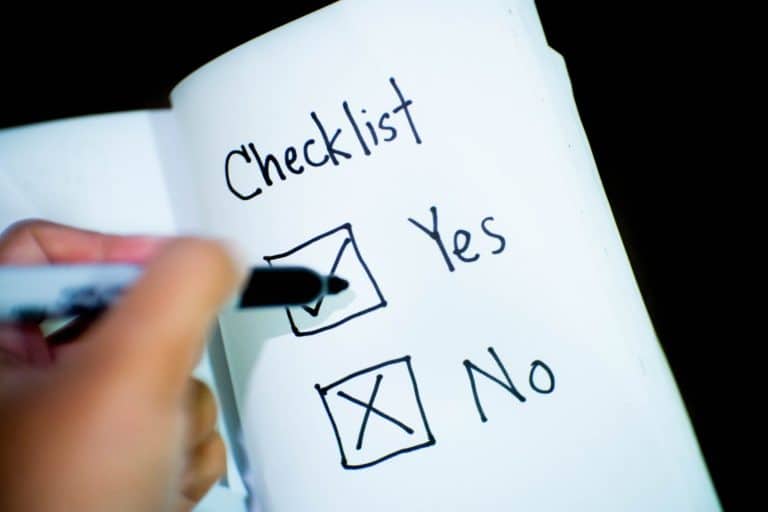Navigating Ebook Copyright Law Made Easy
Ebook Copyright Law
As authors, publishers, and content creators, it is essential to understand the ins and outs of ebook copyright law, especially in December. Copyright law is in place to protect your intellectual property rights from being infringed by others. In this blog post, we will discuss everything you need to know about ebook copyright law and the importance of a well-crafted manuscript.
From understanding what copyright law protects to the importance of notice and registration, we’ve got you covered. We’ll also delve into the concept of the first sale doctrine and how it affects ebook sales. Additionally, we’ll explore limitations on reader rights under copyright law, DMCA takedown notices, and their role in protecting copyrights. Finally, we’ll cover how to protect your copyrighted work and provide a comprehensive guide on overcoming copyright issues. So sit back, grab a cup of coffee, and let’s dive into navigating ebook copyright law made easy.

Understanding Ebook Publishing Copyright Law
Copyright law, which protects original works of authorship, also applies to ebooks. This law grants creators exclusive rights to their work, whether published or unpublished. Importantly, copyright protection is automatic upon creation of a work. Understanding ebook copyright law involves recognizing that it covers digital copies of books and that various digital rights management software can be used to protect these works. It’s essential to comprehend the legal implications to avoid unintended consequences, such as unauthorized reproduction or distribution of ebooks for public sale, rental, lending, or giving away for free without express permission.
Read This: How to Make an Ebook Fast
What Does Copyright Law Protect?
Copyright law safeguards various forms of creative works, including ebooks, literature, artwork, and music. It grants protection to the text, images, illustrations, and even derivative works based on the original creations. This law prohibits unauthorized copying and distribution while giving creators control over the commercial use of their work.
Importance of Notice and Registration in Copyright Law
Copyright notice serves as a means to inform the public about the owner’s rights, while registration with the Copyright Office offers additional legal benefits. Both notice and registration help establish a public record of ownership, although they are not mandatory for copyright protection. However, implementing notice and registration can act as a deterrent for potential infringers. By including these elements, creators solidify their claims and protect their intellectual property.
Why is Registration Necessary?
Registration is a crucial step in ebook copyright law. It allows copyright holders to file infringement lawsuits, provides evidence of ownership and validity, and enables them to seek statutory damages. Without registration, suing for copyright infringement becomes difficult. In negotiations, registration strengthens the copyright holder’s position.
The Concept of First Sale Doctrine in Ebooks
The concept of First Sale Doctrine in ebooks refers to the legal principle that allows the purchaser of a copy of a copyrighted work to resell lawfully made copies, such as selling to a used bookstore. However, it’s important to note that this doctrine primarily applies to physical copies and not digital files. Unauthorized reproductions are not protected under the First Sale Doctrine. By limiting the copyright holder’s control over subsequent sales, this doctrine aims to strike a balance between the rights of the copyright holder and the consumer.
How does the First Sale Doctrine Affect Ebook Sales?
The First Sale Doctrine does not apply to the resale of ebooks. Unlike physical books, ebook sales are typically subject to licensing agreements that may restrict or prohibit resale. These licenses often come with digital rights management (DRM) restrictions and may allow for limited sharing within a household.
Limitations on Reader Rights under Copyright Law
Copyright law imposes restrictions on readers’ rights to reproduce and distribute works. However, fair use exceptions allow for educational, critique, and transformative uses. It’s important to note that DRM technology can impose additional limitations on readers. To respect the creator’s exclusive rights under copyright law, readers must comply with these restrictions. It’s crucial for readers to understand the boundaries set by copyright law and the potential impact of DRM on their reading experience.
Why are Reader Rights Limited?
Reader rights are limited to protect the economic interests of creators. Copyright law aims to strike a balance between the rights of creators and users, encouraging creativity and innovation. Limited reader rights help ensure a fair marketplace for creative works, incentivizing the creation of original content.
DMCA Takedown Notices and Their Role
DMCA takedown notices play a crucial role in combatting copyright infringement online, including on platforms like Google. These notices are sent to service providers hosting infringing content, requesting the removal of the copyrighted material. By doing so, DMCA takedown notices help protect copyrights and intellectual property rights. To be valid, these notices must include specific information such as the copyrighted work, its location, and the claimant’s contact details. Repeat infringers can face legal consequences for disregarding DMCA takedown notices.
How Do DMCA Takedown Notices Protect Copyrights?
DMCA Takedown Notices play a vital role in protecting copyrights. They offer copyright holders an effective way to remove infringing content promptly, shifting the burden of proof to the service provider. As a result, copyrighted works can be safeguarded online, maintaining their integrity.
The Application of Copyright Laws to E-Books
Ebook copyright laws safeguard digital content from infringement, granting the copyright holder exclusive rights to reproduce and distribute the ebook. Copyright registration with the copyright office offers added protection, while digital rights management software helps prevent unauthorized use and piracy. Including a copyright notice in the ebook asserts ownership. These measures ensure the application of copyright laws to e-books, protecting the intellectual property of authors in the digital realm.
Are There Any Special Considerations for E-Books?
Special considerations must be taken into account when dealing with e-books and copyright law. E-books are subject to the same laws as other forms of media, and publishing them online can expose them to potential infringement. Sharing e-book copies without permission can lead to copyright issues, especially if the original download remains on the user’s computer. E-books can be protected through password protection or DRM technology, and the Digital Millennium Copyright Act (DMCA) provides a legal framework for addressing online infringement.
How to Protect Your Copyrighted Work
Registering your ebook with the copyright office establishes a public record of ownership, providing legal evidence of your rights. Adding a copyright notice to your ebook informs others that it is protected by copyright law. Utilizing Digital Rights Management (DRM) software can prevent unauthorized copying and distribution, safeguarding your intellectual property. Taking legal action against copyright infringement can result in significant advantages, such as penalty awards, discouraging potential violators. Educating yourself on copyright law empowers you to better protect your work.
Steps to Ensure Your Work is Protected
To ensure your work is protected, start by creating your ebook in a tangible form to obtain copyright protection. Include a copyright notice on the title page, using a copyright symbol, the year of publication, your name as the copyright owner, and a copyright page template. Consider obtaining an ISBN for further uniqueness. Lastly, diligently monitor online platforms for any unauthorized copies or infringements.
Overcoming Copyright Issues: A Comprehensive Guide
To successfully navigate ebook copyright law, it is crucial to educate yourself on the subject. This will help you avoid unintentional copyright infringements and ensure you have the necessary permissions to use copyrighted material in your ebook. Understanding fair use and public domain guidelines is also essential to avoid copyright issues. Additionally, properly attributing any copyrighted works you reference is important. If you’re uncertain about copyright issues related to your ebook, seeking legal advice can provide valuable guidance.
Is There a Way to Avoid Copyright Problems?
Creating original content, conducting thorough research with proper citations, using royalty-free images and music, obtaining licenses or permissions for copyrighted material, and also monitoring distribution channels can help avoid copyright problems.
How Does Copyright Law Impact the E-Book Market?
Copyright law has a significant impact on the e-book market. It protects authors’ rights and encourages the creation of e-books. However, copyright restrictions can limit the availability of certain e-books, potentially impacting sales and revenue. The rise of self-publishing has also brought copyright issues to the forefront. E-book platforms and service providers have policies in place to address copyright concerns.
Frequently Asked Questions
Do eBooks need a copyright?
Yes, eBooks require copyright protection. The author automatically owns the copyright, but registering adds extra legal benefits. Unauthorized use can lead to legal consequences.
How do I avoid copyright on my eBook?
To avoid copyright issues with your eBook, it is essential to use original content or obtain permission from copyright owners. Properly citing and also attributing sources is crucial. Consider using Creative Commons licensed material or public domain works. Consulting with an attorney can help ensure your eBook complies with copyright laws.
Are eBooks automatically copyrighted?
Yes, eBooks are automatically protected by copyright law upon creation. Registering your eBook with the Copyright Office is recommended for added legal protection. Copyright gives authors exclusive rights to distribute and also profit from their work. Unauthorized use can lead to legal action and penalties.
Do I need a copyright for my book for Kindle?
While your book is automatically copyrighted upon creation, registering for a formal copyright offers additional legal protections. Amazon Kindle requires you to have the legal rights to publish content on their platform. Consider consulting with a copyright expert or attorney for guidance on protecting your ebook.
How does copyright work on ebooks?
Ebooks are protected by copyright law, granting authors exclusive rights to control their work’s use and distribution. Infringing on an ebook’s copyright can result in legal action and also penalties. Authors automatically own the copyright upon creation, just like with physical books.
Conclusion
In conclusion, understanding ebook copyright law is crucial for both creators and consumers of digital content. Copyright law protects the originality and ownership of creative works, ensuring that creators are recognized and compensated for their efforts. Registration plays a significant role in establishing legal protection, offering added security to authors. The first sale doctrine allows consumers to resell or lend physical copies of books, but its application to ebooks is still evolving.
Follow on Instagram.





